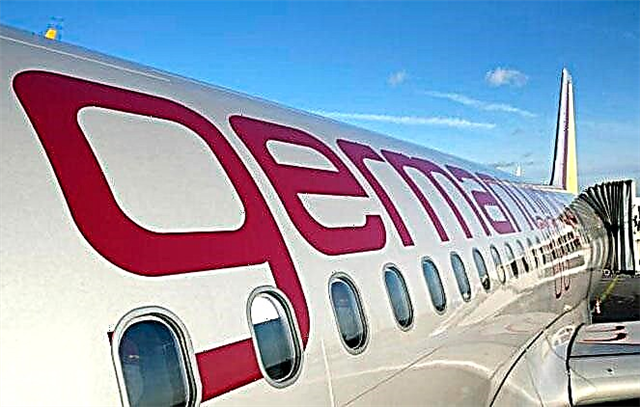Socialist Poland has remained in the distant past, representing a certain interest only for historians. Today the country is part of the EU and is a kind of "granary" of Europe. Small business in Poland is successfully developing, contributing to an increase in the employment rate of the population and creating a solid foundation for the growth of the country's economy.

What is typical for small businesses in Poland
According to experts, the Polish economy has retained a conservative structure, which served as a defense against the pan-European tendencies of stagnation. High growth rates of economic indicators are ensured, among other things, due to the viability of traditional small and medium-sized businesses in the country.

Small (up to 69 employees and up to 7 million euros in income) and medium-sized (up to 250 employees and up to 40 million euros in annual profit) companies account for 98% of the total number of legal entities, while providing up to half of Poland's total GDP.
In addition, this sector employs almost 70% of the population. Among the most common and profitable economic activities are the sale and repair of vehicles, construction, retail, finance and insurance industries.
Types of organizational and legal forms of activity in Poland
Everyone who wants to organize their business in Poland, including foreigners, has access to several types of business organization:
- individual entrepreneurship (self-employment);
- partnerships without the formation of a legal entity - spółka (simple, full, limited, partnership);
- limited liability company - spółka z ograniczoną odpowiedzialnością (legal entity with a statutory fund of 5 thousand Polish zlotys);
- joint-stock company - spółka akcyjna (to establish a company, you will need a share capital in the amount of PLN 100,000);
- foreign representation - przedstawicielstwa.
Buying a ready-made business in Poland
It often happens that a foreigner moving to Poland for permanent residence has neither the time nor the desire to register a new company. In this case, it is worth considering the option of buying a ready-made business, so to speak, on a turnkey basis.
At the same time, the most difficult thing is not to make a mistake at the stage of choosing a seller.

To avoid possible problems, you should seek help from specialized companies (a kind of realtors) or take care of this yourself, but it is imperative to conduct a full audit of the acquired business entity before completing the purchase and sale transaction.
The transfer of ownership of the company takes place at the notary, who can immediately make some adjustments regarding the new legal address of the company, its name or other nuances.
Completes the registration procedure in the State Court Register (Krajowy Rejestr Sądowy). For more information on how a customer should behave, see the article "Buy a business in Poland".
Business organization from scratch
Buying a ready-made business certainly has its advantages: experience and reputation, licenses and permits. At the same time, an investor can acquire many hidden problems that have accumulated over the years of the company's work. Moreover, even an audit conducted before the purchase cannot insure against this.
Therefore, many people prefer to start their business by registering a new company.
The process of submitting documents itself is not complicated and takes 1-3 days, however, it will take about three weeks to register in the State Court Register (KRS) and register with the fiscal authorities.
The registration procedure is not free - you have to pay 500 zlotys for it, another 100 zlotys will cost the publication in the "Government Gazette". After that, the newly-made owner of the company will be given a certificate, tax (NIP) and statistical (Regon) numbers.
Taxes for business in Poland
Having become a co-founder of a company or its sole owner, a newly-made businessman must understand that one of the main duties of a legal entity will be to pay taxes to the state budget.

Polish companies and entrepreneurs pay:
- Income tax (CIT): base rate - 19%; small business, if its annual turnover does not exceed 1.2 million euros, pays 15%;
- value added tax (VAT): base rate - 23%; from 0 to 8% - for export and preferential transactions;
- excise duty - provided for a specific list of goods: alcohol, tobacco products, gasoline, gas, diesel fuel, cars, alcohol-containing products and others;
- personal income tax (PIT) - from 18 to 32%, depending on the amount of employees' annual income; entrepreneurs pay 19% of their income.
Accounting and tax reporting in Poland
Large taxpayers are required to file income tax and VAT returns on a monthly basis. Smaller entities can choose for themselves a quarterly and even an annual reporting period. In this case, the data in the tax returns of the company must be confirmed by entries in the Trade Book, in which all transactions are entered in chronological order in accordance with the accounting policy adopted by the company.
It should be noted that the state does not insist on using a standard accounting chart of accounts, allowing legal entities to use their own.
Businessmen starting their own business in Poland are advised to hire a professional accountant, especially since his services are not so expensive.
Financial support programs for small and medium-sized businesses in Poland
When registering a new company in Poland, it is mandatory to have a memorandum of association and a fully formed authorized capital. Additionally, businessmen must acquire another document - a business plan for the implementation of a commercial idea.
For young companies that have managed to work for at least 365 days, concessional loans to small businesses from Polish banks are possible at a rate of 6-8% per annum.
In addition, the participation of Poland in such an association as the European Union allows business to hope to receive part of the money allocated by the financial institutions of the EU for the development of the country's economy. Non-refundable grants from the European Union are provided directly to companies themselves, therefore, Polish state programs for small and medium-sized businesses are more focused on helping in interaction with pan-European organizations, simplifying administrative procedures and reducing organizational burden.

Subsidies are allocated to enterprises that have chosen one of six priority areas:
- infrastructure,
- human capital,
- development of Eastern Poland,
- innovative economy,
- development of territorial self-government,
- technical support.
In order to receive a subsidy, an entrepreneur must submit an application to the appropriate state body in Poland (for example, the Polish Agency for Enterprise Development). If the presented business idea meets the requirements of EU investors, then companies can allocate funds for up to 3 years.
Additionally, and sometimes in parallel with subsidies, there are other support methods:
- 14 special economic zones within the framework of the "Entrepreneurship First" program;
- subsidizing the creation of new jobs from national and regional funds;
- a network of clubs for local initiatives and academic business incubators.
Promising small business ideas
The abandonment of the planned economy in Poland occurred much earlier than in the post-Soviet space, so it is not so easy to quickly organize a profitable business here today. In traditional areas, many use the franchise of already promoted networks:
- retail;
- public catering (fast food service establishments);
- Financial services;
- insurance;
- maintenance of vehicles;
- sale of alcohol.
In a highly competitive environment, the support of the "big brother" will not be superfluous.
A somewhat unusual thing can be called the organization of a branch of a financial institution under the patronage of one of the banks. Financial franchises are provided by Bank BPH, Alior bank, Bank Zachodni WBK, Getin Bank, the cost ranges from 20-35 thousand zlotys.
What questions are most often of interest to novice businessmen?
Moving to another country always raises a lot of questions. It is impossible to foresee and predict all the difficulties that may arise for a foreigner who decides to change his place of residence and work. However, there are a number of situations that occur quite often.
What should be the minimum investment in a business in Poland in order to receive a Residence Card?
The presence of business interests in Poland is not always the basis for obtaining a Schengen multivisa. Buying or organizing your own business in the country will allow you to obtain a residence permit in Poland - a Card of Residence (Karta pobytu).
Obtaining a temporary or permanent residence permit is the basis for obtaining citizenship, and also gives freedom of movement in most EU countries.
In order to qualify for a residence permit, a candidate must demonstrate a desire to invest in the Polish economy - for this, it is enough to immediately replenish the company's account with 62 thousand zlotys.
At the same time, a foreign investor wishing to subsequently obtain the citizenship of this country should be prepared for the following financial costs:
- the cost of issuing a Residence Card - PLN 340-680;
- card production - PLN 50;
- purchase of a franchise - PLN 20-100 thousand;
- expenses for the preparation of the premises and working capital - depending on the chosen type of activity.
Starting a company with the help of intermediaries can cost from 600 to 1,500 euros. An organized company will require monthly costs:
- for salary payments (there must be at least two Poles in the staff) - 970 euros;
- accounting services and payment of a legal address - 170 euros;
- taxes - approximately 830 euros.
You can read about how to visit the country to resolve business issues or for commercial purposes in the material "Business visa to Poland".
How long will it take to open your company in Poland?
Preparation and provision of the necessary package of documents, especially if you resort to the paid assistance of an intermediary firm or individual specialists (lawyer, notary, accountant), will take several days. It will take up to a month to register a legal entity in the State Court Register (maximum 45 days).
Extends the waiting time for the need to publish registration data in the "Government Gazette", as well as the receipt of codes in the tax office (Urzędzie Skarbowym) and statistics office (Urzędzie Statystycznym).
Does the amount of VAT depend on the selected KVED in Poland?
The basic VAT rate in Poland is 23%, but it does not apply to all types of transactions and supplies. There are a number of products and services that are taxed at a reduced rate or exempt from it entirely:
- 8% - medicines, passenger transportation, hotel business;
- 5% - sale of ready-made food and groceries;
- 0% - export of services and goods, supply of computer equipment for the blind, medical services.
What types of activities require a special permit?
As in most European countries, Poland actively uses the mechanism of obtaining a license and compulsory certification of certain goods and services to control certain types of activity. So, without a license you cannot do:
- mining and development of minerals;
- arms trade, security and detective activities;
- fuel turnover and energy business;
- air transportation;
- trade in alcohol, tobacco, medicines;
- provision of telecommunication services.
Conclusion
Most foreign investors from the former USSR (Russians, Ukrainians and others), thinking about moving to Europe, opt for Poland, relying on the country's dynamically developing economy and similarity in mentality. However, few of them are prepared for the high degree of competition and density in the small business sector. Only those who take care of attracting local partners or successfully invest in acquiring a franchise will be able to overcome unexpected obstacles.











